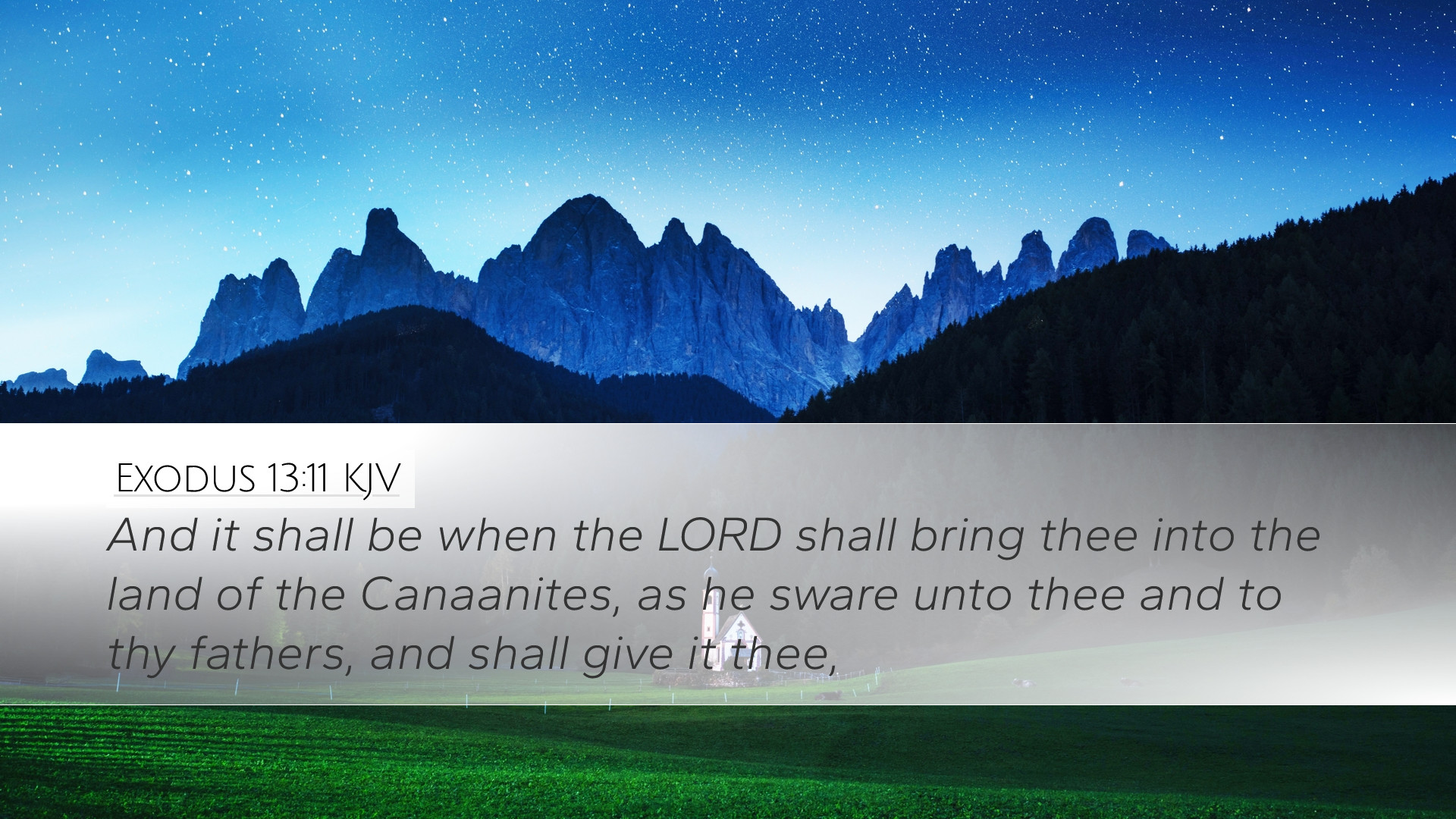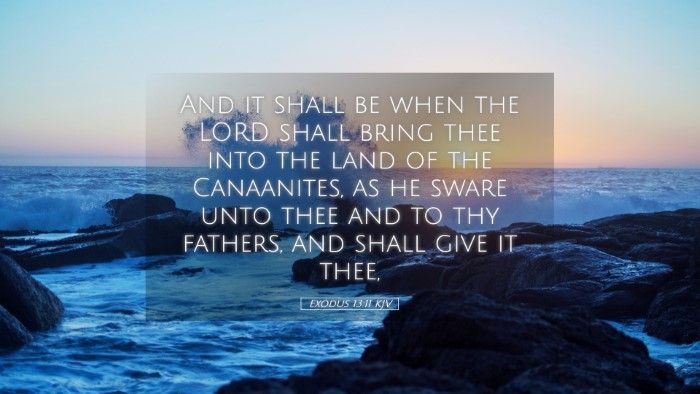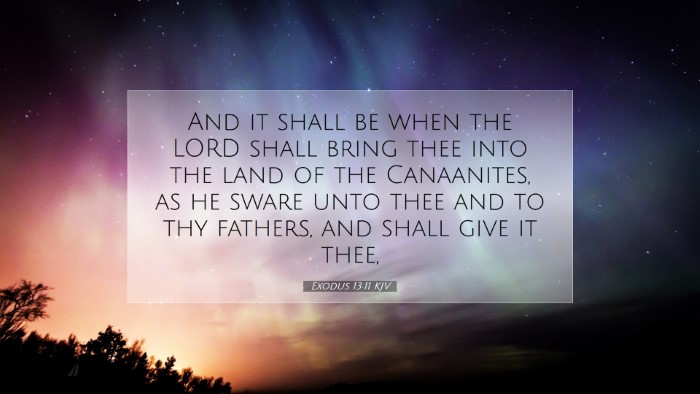Exodus 13:11 - Commentary and Insights
Bible Verse: "And it shall be, when the LORD shall bring thee into the land of the Canaanites, as he sware unto thee and to thy fathers, and shall give it thee."
Introduction
The verse Exodus 13:11 serves as a pivotal reminder of God’s covenant with His people, focusing on the promise of the land of Canaan. This commentary draws insights from notable biblical scholars and commentators to unpack the theological, historical, and practical implications of this verse.
The Covenant and Promise
Matthew Henry emphasizes that this verse serves as a reminder of God's faithfulness to His promises. The mention of "the Canaanites" signifies that the land was occupied and that the Israelites were to inherit it through divine intervention. This subtext speaks to God’s control over history and His unwavering commitment to His covenant with Abraham, Isaac, and Jacob.
Albert Barnes notes that the transition from enslavement in Egypt to the Promised Land exemplifies God's redemptive plan. The assurance that the LORD would "bring" the Israelites into their inheritance reflects not just a geographical shift but also a spiritual journey from bondage to freedom, a theme that resonates throughout the Scriptures.
The Role of Obedience
Furthermore, Adam Clarke highlights the importance of obedience in receiving this promise. The Israelites were instructed on how to remember their deliverance through the Passover and other rituals. Clarke asserts that their fidelity to God's commandments was essential in the process of entering the land. Thus, while divine grace initiates their journey, obedience is a requisite for the fulfillment of God's promises.
Theological Implications
The theological significance of this verse reveals a broader narrative concerning God’s sovereignty and human responsibility. The Israelites were not merely passive recipients of God's promise; rather, they were active participants whose responses could affect their destiny.
- God’s Sovereignty: This verse illustrates God’s sovereign ability to deliver His people from oppression and provide for their future. It reassures believers that regardless of present circumstances, God remains in control and faithful to His Word.
- Faith and Expectation: The anticipation of entering Canaan serves as a metaphor for the believer's hope in God's promises today. Just as the Israelites were asked to trust in God's timing and methods, so are modern believers called to exercise faith amidst uncertainties.
- Historical Context: This verse connects to the broader narrative of Exodus, where God establishes His people as a nation set apart for His purposes. Understanding the historical backdrop enriches the reader's comprehension of God's redemptive plan.
Historical Context
The context surrounding Exodus 13:11 unfolds during a critical time in Israel’s history. After 400 years of slavery in Egypt, their emergence is marked by the miraculous exodus led by Moses. The verse serves as a transition from this exodus to the expectation of receiving their inheritance in Canaan.
Scholars like Henry indicate that the journey to Canaan is emblematic of both physical and spiritual liberation. The promise of the land was not just about territory, but about entering into a relationship with God that was enriched by obedience, worship, and community.
Practical Applications
The insights garnered from this verse can be distilled into several key applications for contemporary pastoral practice and personal devotion:
- Celebration of Deliverance: Just as the Israelites were to remember their deliverance, modern congregations should celebrate their spiritual redemption through Christ, reflecting on the significance of salvation.
- Teaching Obedience: Pastors can emphasize the necessity of obedience to God’s commandments as a means of experiencing His promises in their fullness.
- Cultivating Expectation: Encourage congregations to live in expectation of the blessings that God has promised, reminding them that His faithfulness is independent of current trials and tribulations.
Conclusion
Exodus 13:11 stands as a vital reminder of God's unwavering promise to His people. The theological reflections, historical context, and practical applications derived from this verse offer meaningful insights for pastors, students, theologians, and Bible scholars. By understanding the depth and richness of this promise, believers are encouraged to walk in faith, live in obedience, and anticipate God's continued faithfulness in their lives.


